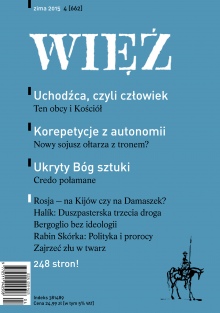
We kindly inform you that, as long as the subject affiliation of our 300.000+ articles is in progress, you might get unsufficient or no results on your third level or second level search. In this case, please broaden your search criteria.

review of: Kitabın Künyesi: Ed. Adem Çaylak, Mehmet Dikkaya, Cihat Göktepe ve Hüsnü Kapu, Osmanlı'dan İkibinli Yıllara Türkiye'nin Politik Tarihi (İç ve Dış Politika), Savaş Yayınevi, Beşinci Baskı, Ankara, 2014, ISBN : 978-605-5343-46-0
More...
review of: ---------------------------- Ed. Adem Çaylak, Mehmet Dikkaya, Cihat Göktepe ve Hüsnü Kapu, Osmanlı’dan İkibinli Yıllara Türkiye’nin Politik Tarihi (İç ve Dış Politika), Savaş Yayınevi, Beşinci Baskı, Ankara, 2014, ISBN : 978-605-5343-46-0
More...
review of: ----------------- Aytekin Yılmaz, Küresel Dünyada Uluslararası İlişkiler Teori-Temel Kavramlar - Yeni Gelişmeler, İkinci Baskı, Kadim Yayınları, 2013, ISBN: 978-975-9000-38-7
More...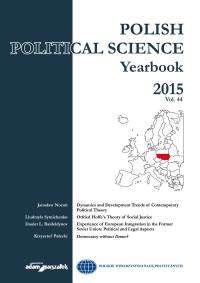
Regardless of the role that is attributed largely to the traditional attitude of Switzerland on bilateral relations and the trend of still continuing the support of the conduct of international design policies, one still cannot ignore the importance of the part played by the participation of both countries in international organizations. In the face of the current progressive opacity and complexity of the global situation, which not only makes it impossible to carry out the policy of isolationism, but also significantly reduces the effects of bilateral policy, an increase in the role of this plane has become increasingly evident in many contexts Polish-Swiss relations.
More...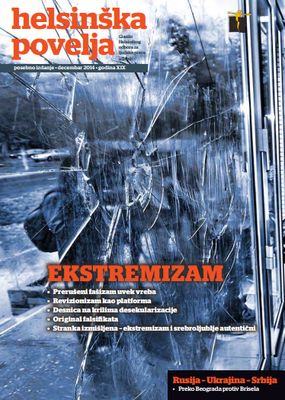


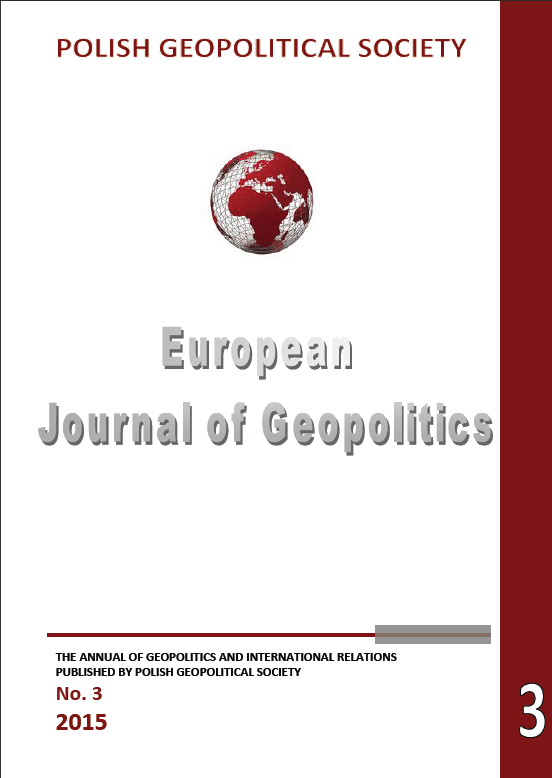
Geostrategic analyses of position of the state are focused on evaluation of its location and geographic, demographic, economic and military attributes in geopolitical context, mainly in the comparison with neighbouring countries. From the small and middle state’s point of view are those analysis linked with their foreign policy orientation and at the same time they contribute to its national interests formulation. Submitted analysis presents the position of Slovak Republic in the Central-European space and points to selected geostrategic specifics in relation with neighbouring countries, as well as to broader geopolitical space. It also briefly analyse geopolitical contexts of Slovakia’s integration process with western structures.
More...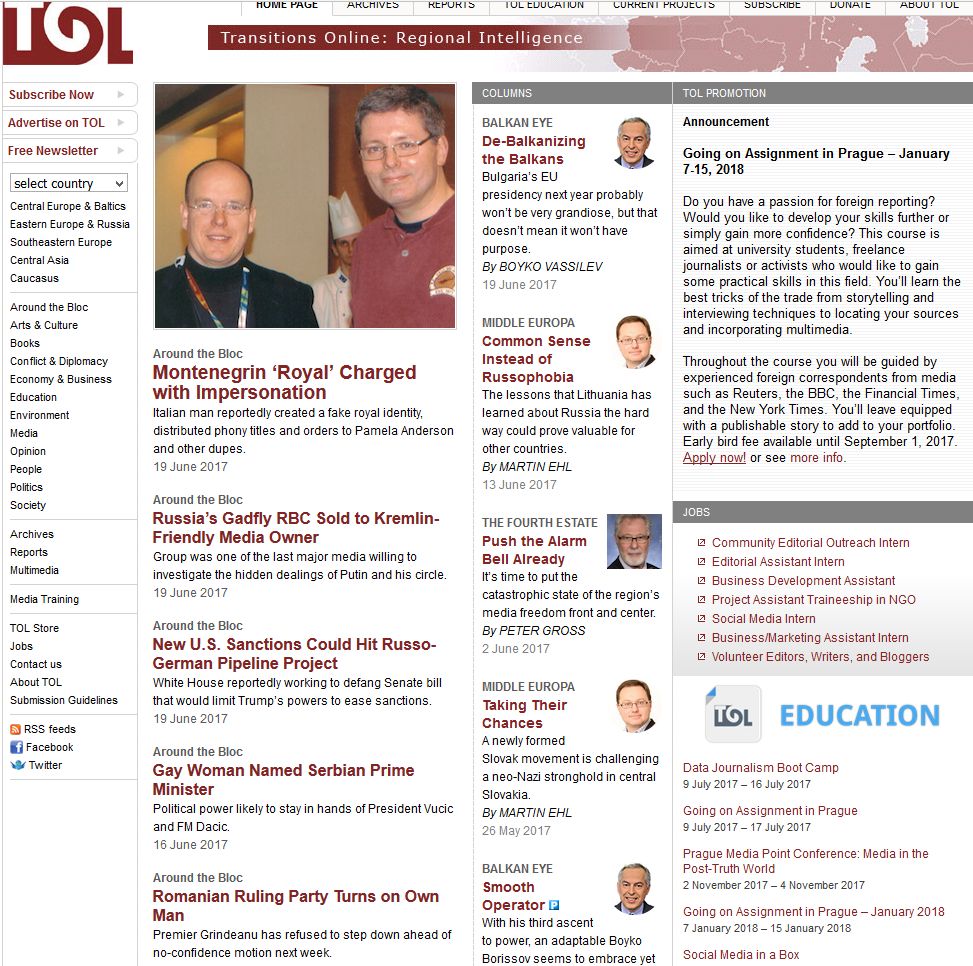
Brussels will assume a hard line against Hungary, Poland, and the Czech Republic over their refusal to accept refugees according to previously agreed quotas.
More...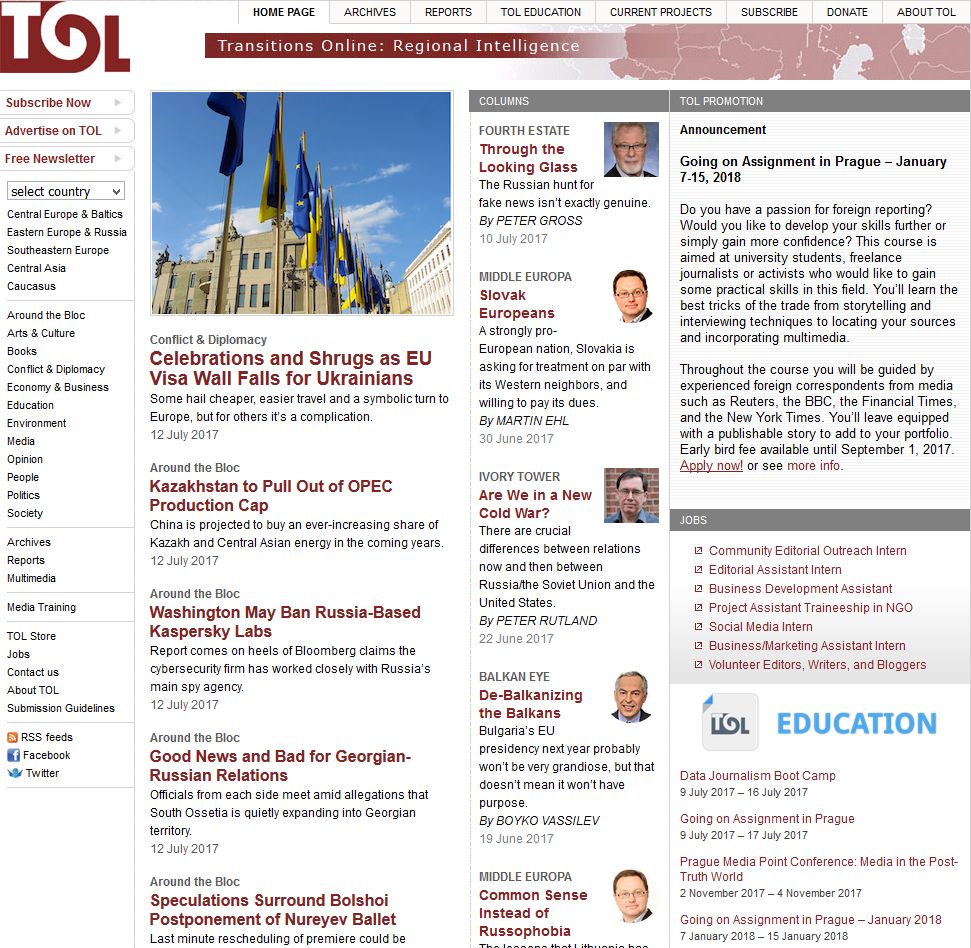
As the UK pledges new funds for demining efforts, former Yugoslav countries slowly clear the deadly legacy of war.
More...
The fate of the Independent Institute for Socio-Economic and Political Studies emphasizes the need to protect the few remaining independent sources of information in the country. By Peter Gross
More...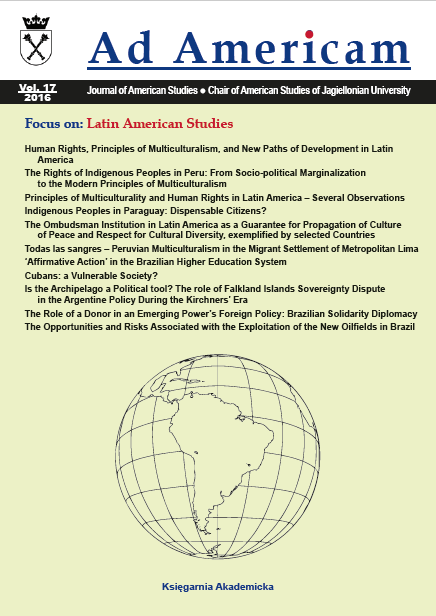
The main goal of this article is to present to the European reader the implications of the crisis of the Chinese banking system, which peaked in August 2015, and triggered a period of high volatility in the U.S. stock market. As a result, trade relations between China and the U.S. have deteriorated, which raises the question of whether the Chinese economic system will implode and contribute to the global crisis, or whether it can be controlled by Beijing? The article assumes two things: that subsidies are at the core of U.S. criticism of Chinese trade priorities; and that to understand recent American-Chinese trade conflicts, we must first review the more general issue of American attitudes towards the subsidizing practices of non-market economies. The article will conclude with the observation that, in discussing the obvious points that China needs more market-oriented reforms and should be more open to U.S. trade priorities, we may overlook some other more important problems, such as differences in the business cultures of both countries. So, rather than forcing uncertain compromises, American and Chinese trade experts must develop better problem solving skills and discuss new fields of collaboration.
More...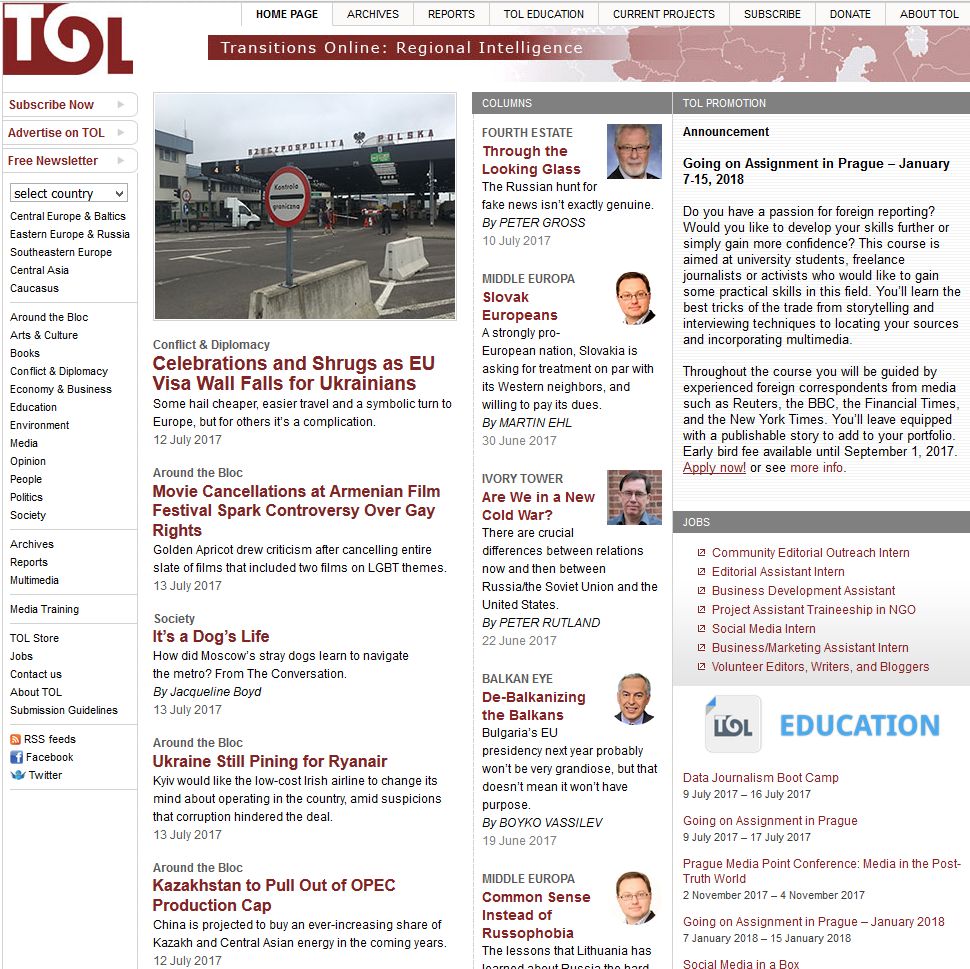
Washington is betting the tiny country can curb Russian influence in southeastern Europe.
More...
Premier planned to make a campaign stop in a Serbian-inhabited town, amid uncertainties whether Kosovo Serbs will be able to vote in Sunday’s election.
More...
Fake news reports about visa-free travel to the U.S. give false hope to Azerbaijanis.
More...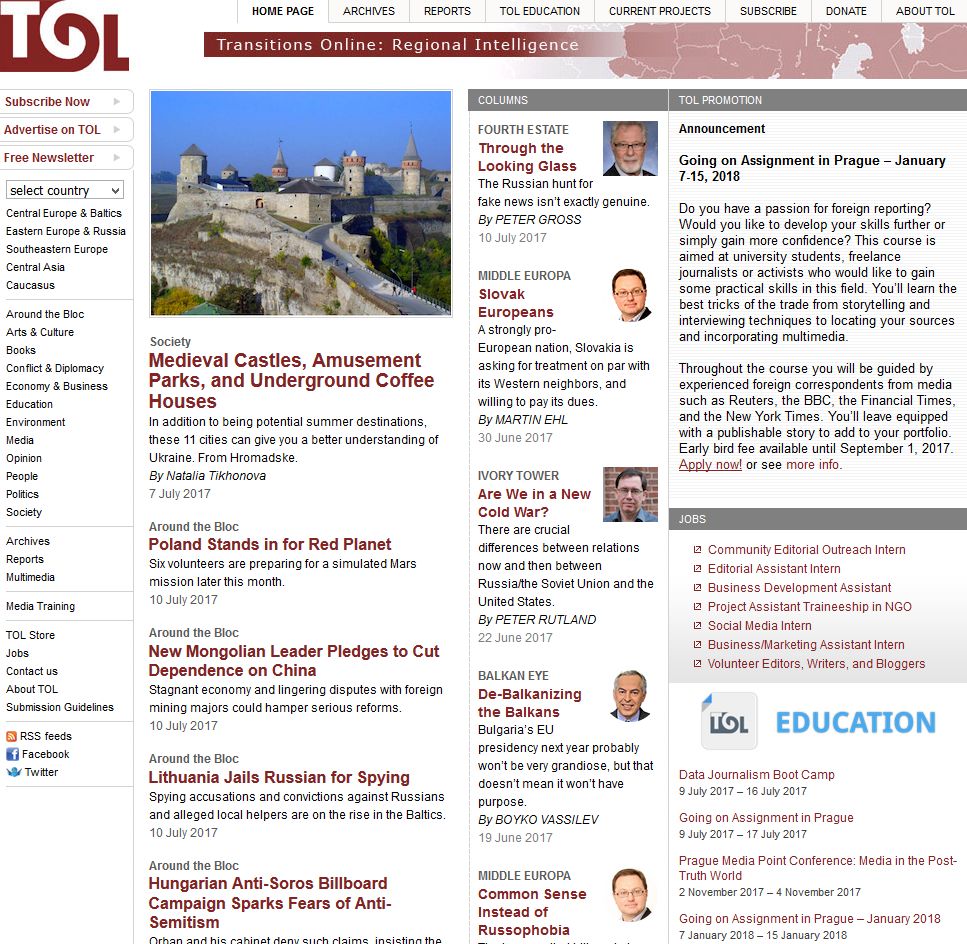
Deadlocked Serbia and Kosovo, along with Macedonia and Greece, show willingness to talk things over.
More...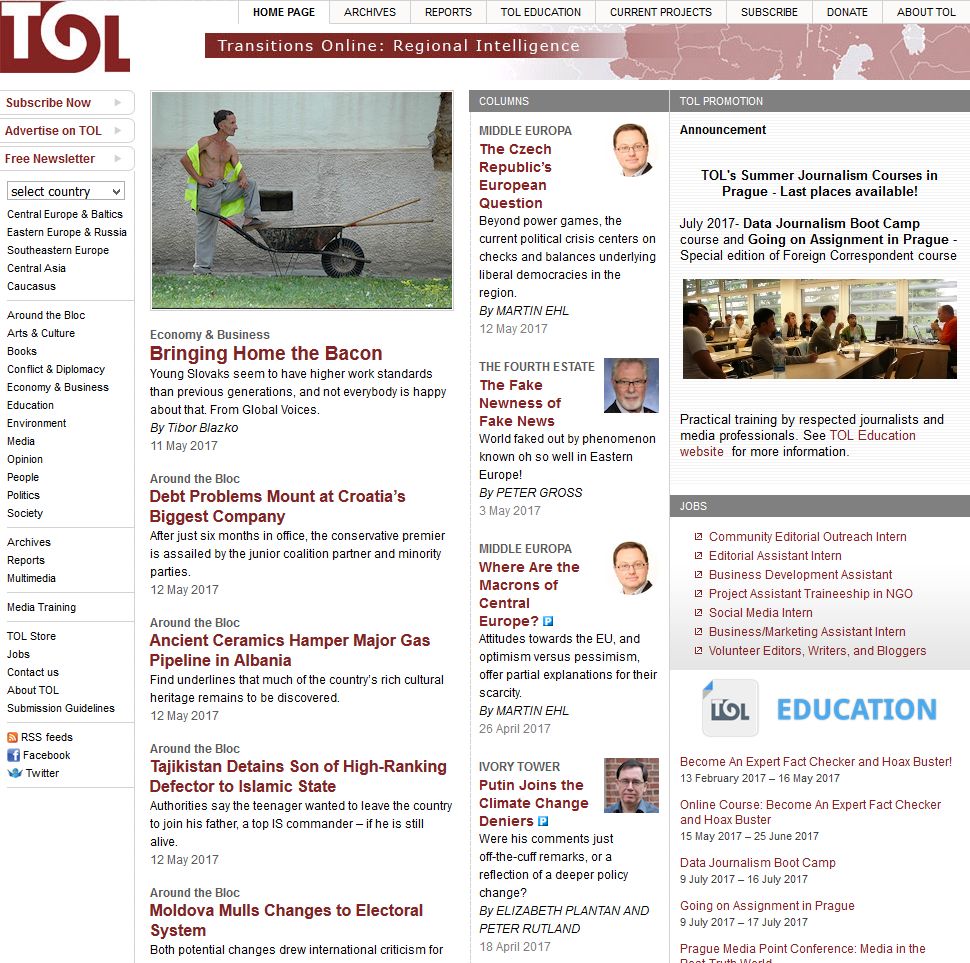
Questions raised about Poland’s detention of Austrian man suspected of killing POWs in Ukraine.
More...
Emmanuel Macron compares Polish leader to Putin and Orban, days after threatening sanctions on Warsaw.
More...
The eighteen-time major winner is working with eccentric leader Berdymukhamedov on designs for several golf courses.
More...